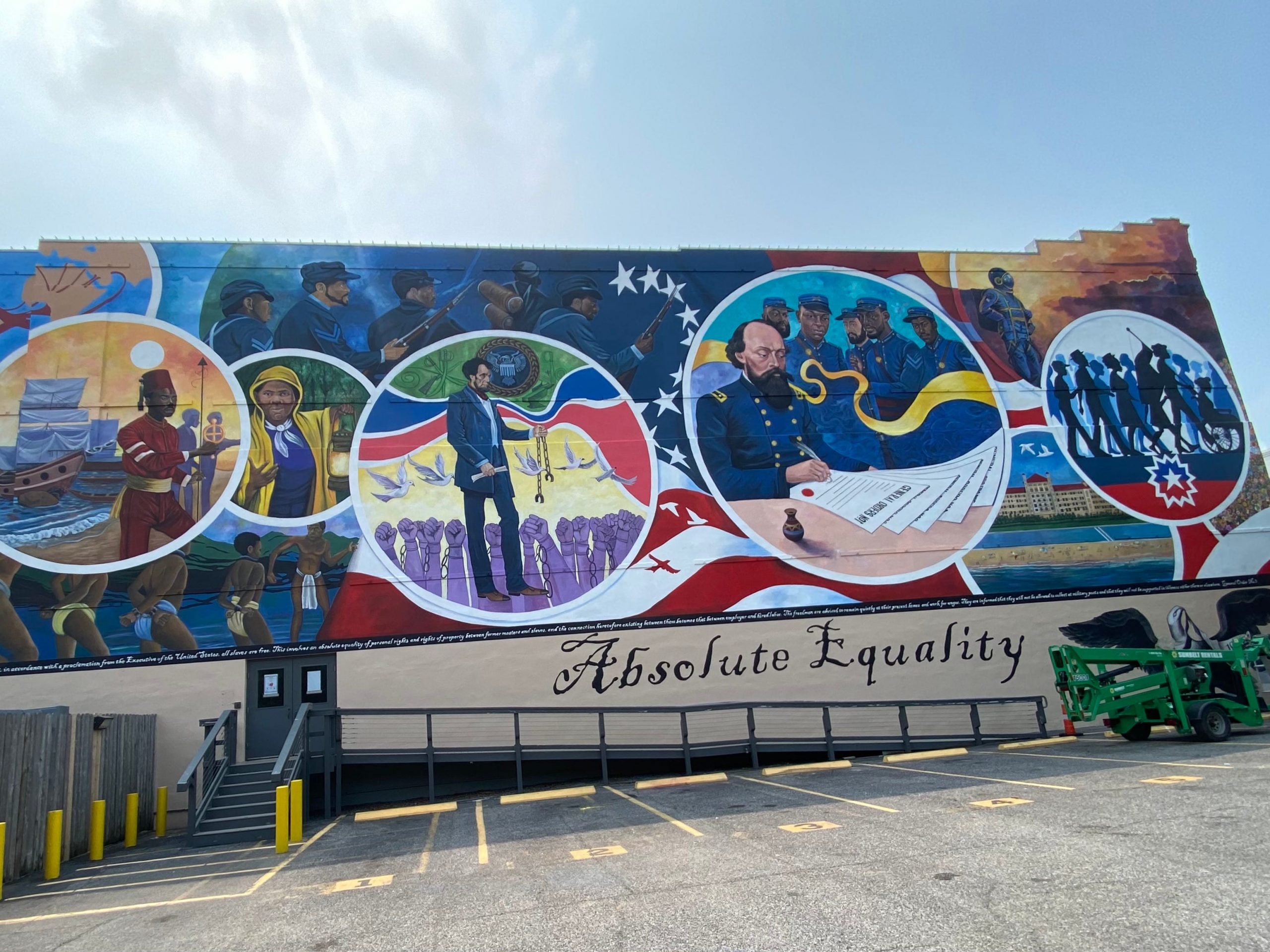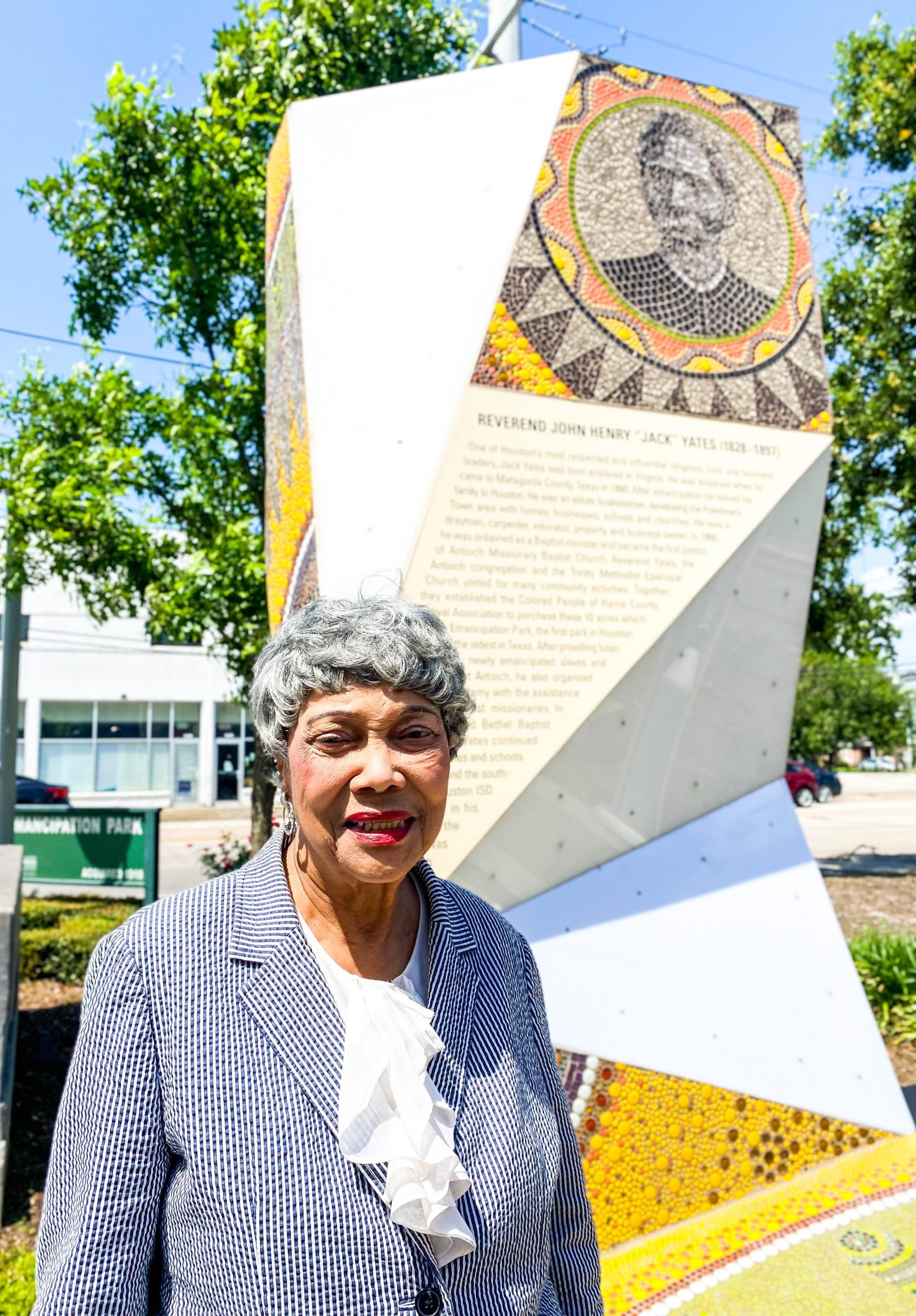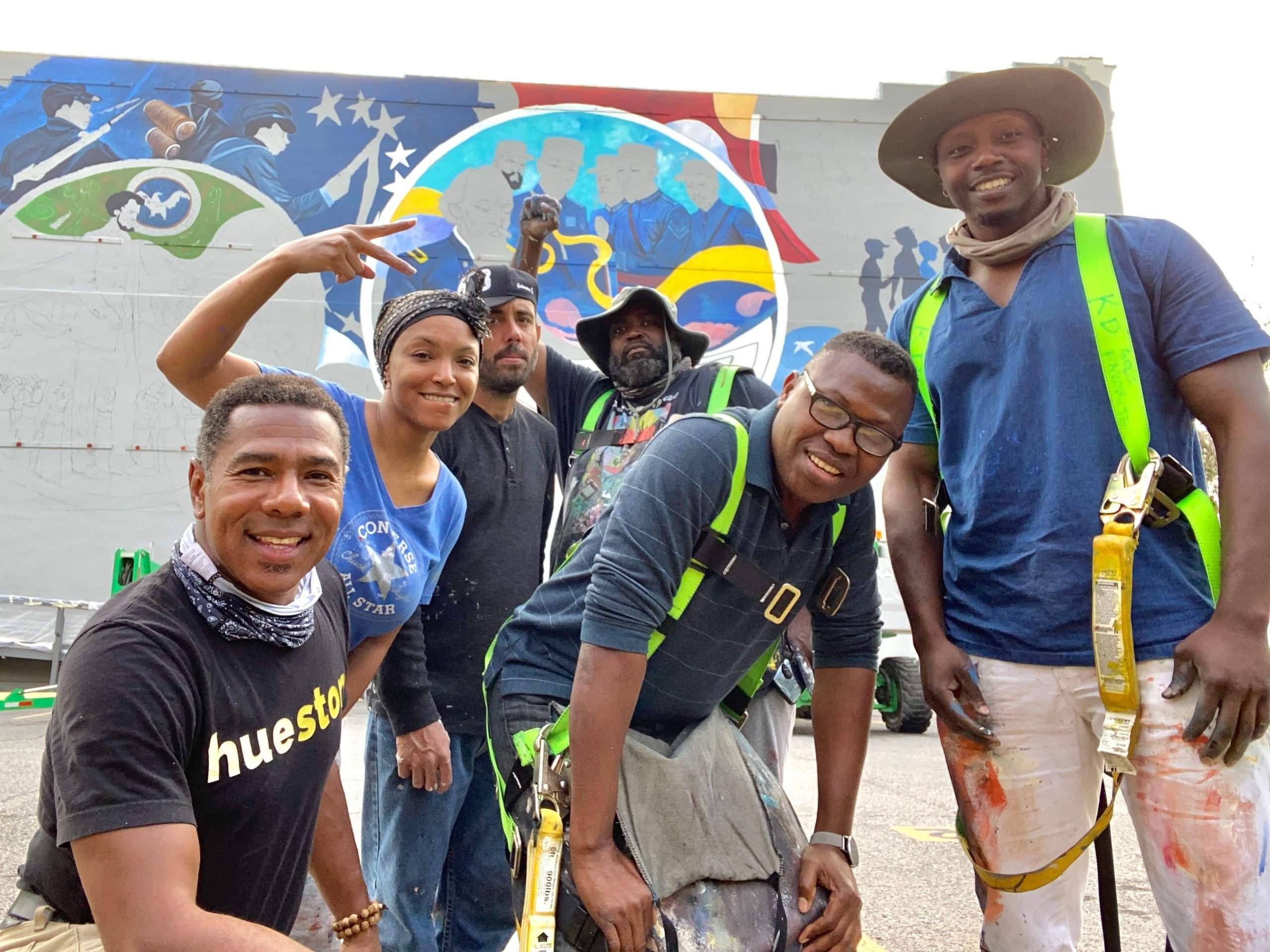
Courtesy of Juneteenth Legacy Project
- Juneteenth, commemorating the end of slavery, could become the US's newest federal holiday.
- As its popularity grows, local activists warn Juneteenth's Texans origins are being erased.
- Generations of Black women are working to keep Texas history at the center of the holiday.
- Visit Insider's homepage for more stories.
As Juneteenth approaches, the historic date is trending more than ever, but its roots and history are sometimes lost.
After the Civil War, most slaves in Texas were still unaware of their freedom until Union troops arrived in Galveston in 1865 to announce President Abraham Lincoln's 1863 Emancipation Proclamation two years prior, beginning the nation's first Juneteenth celebration.
By 1980, Texas was the first to make Juneteenth a state holiday. Now, 47 states and the District of Columbia do.
A bill passed in Congress this week that would make Juneteenth a National Independence Holiday now awaits President Joe Biden's signature.
But while it's recognition grows globally, activists say the heartbeat of Juneteenth still pumps strongly throughout Texas -- in Galveston and Houston, respectively.
Insider spoke with Black Texas women about why they're fighting to keep Juneteenth true to its Texas roots.
"Juneteenth is an opportunity for people to learn about where they come from, what kind of heritage they have, where we originate from, who we are, not just the people who were brought on the boats and turned into slaves," says Amari Rowe, an 18-year old native of Galveston.
Like Juneteenth, today's racial unrest has roots in Texas

Lyndsay Livington for Insider
Nowadays, it's 83-year old Jacqueline Bostic's contemporary connection to racial justice protests that draws visitors to Houston. George Floyd, whose murder at the hands of Minneapolis police sparked racial unrest throughout last year, grew up in the city.
He also played football and basketball at the high school named after Bostic's great-grandfather, Rev. Jack Yates, a prominent figure in Juneteenth spreading to the city from Galveston.
After emancipation, Yates and his wife moved from the plantation where they had been enslaved to Houston. He along with three other men eventually raised enough money in 1872 to purchase the land established as Emancipation Park - commemorating Juneteenth in the city's Third and Fourth Wards.
"He came through a period of time that most of us today wouldn't even think about or have no idea of what it means to live what he lived through," Bostic told Insider. "I really feel like the work he did for the community was of such value that it's the kind of work that we need to continue in our community."
The site was and still is a destination for Juneteenth celebrations, family and community gatherings. Today, it is a protected historic landmark and is Texas' oldest public park.
As a lifelong activist, the octogenarian serves on the board of directors for her great-grandfather's park's conservancy, even advocating for the development of a proposed 51-mile route known as Emancipation Trail - connecting Houston to Galveston.
Supported by Congresswoman Sheila Jackson Lee, an early advocate for federal Juneteenth recognition, the trail would chronicle the journey of Black families as they traveled and shared news of freedom, connecting historic landmarks from city to city.
Bostic told Insider that amid demands for change, the story of Floyd's life and his loose connection to Juneteenth and her great-grandfather is part of the country's needed racial awakening.
"In 2021, it's important to know there are still people in our community who see the need to understand what has happened in our past," she added.
Young leaders are emerging to share Juneteenth's local legacy

Courtesy of Juneteenth Legacy Project
Just an hour south along a different route, Juneteenth's journey through Texas is memorialized by local Black artists in a 5,000- square foot art installation called Absolute Equality.
Blazon on the side of the Old Galveston Square building, the mural depicts Black Texans' early history in America: enslaved Africans being marched onto ships. Harriet Tubman, the leader on the Underground Railroad is painted leading Black people to freedom.
While Abraham Lincoln is shown holding the Emancipation Proclamation, it's Gen. Gordon Granger flanked by Black Union soldiers as he reads the order to declare emancipation that honors Juneteenth.
Houstonian Cherry Meekins, 41, was tapped to contribute to the project. But she admits that before starting, she was among the 60% of Americans who hardly knew about Juneteenth.
Working on "Absolute Equality" gave her a much-needed history lesson.
"When I learned about the history that took place there, at the site, it moves you, it can bring tears to your eyes," Meekins said.
Meekins channeled that visceral reaction - and being the lone Black, female artist involved - into her brushstrokes as she ascended a crane to paint Harriet Tubman on the wall.
We've played such a role in the freedom of our people," she told Insider. "The Black woman has taken on so much of the burden of catapulting our people into freedom and into opportunity,."
"To be painting and bringing such a project to life, I feel like young girls and other women get to see me and say 'if she did that, I can, too.' It's about leaving your mark, leaving your legacy and letting people know you were here."
Inspired, her role soon expanded beyond painting to leading educational workshops to teaching young artists about the importance of Juneteenth while bringing the public project to life.
Amari Rowe, 18, was one of those young women.
Raised in Galveston, Rowe's knowledge of Juneteenth comes from a mother and grandparents who were committed to ingraining African-American history into her head.
"This was drilled into me since I was a baby," she told Insider. "It's important to me that people understand how important our history is, what we come from and how much potential we have."
Rowe argued that with a society that already "does not give Black people enough credit for what they do and have done," keeping Texas' rightful place at the center of Juneteenth celebrations is part of a generational struggle.'
"We originated so much, we invented so much and it was all taken from us because we were considered property."
Peering through their past, present and future lenses, Bostic, Meekins and Rowe view Juneteenth as an opportunity to foster a world of peace and progress, and that their unwavering commitment will influence necessary change moving forward - for Black people, all people, in Texas and around the world.
"This is a win for us, this is going to help build us up and get us to come together as not just as people, but as whole people, as a lineage," Rowe said.

